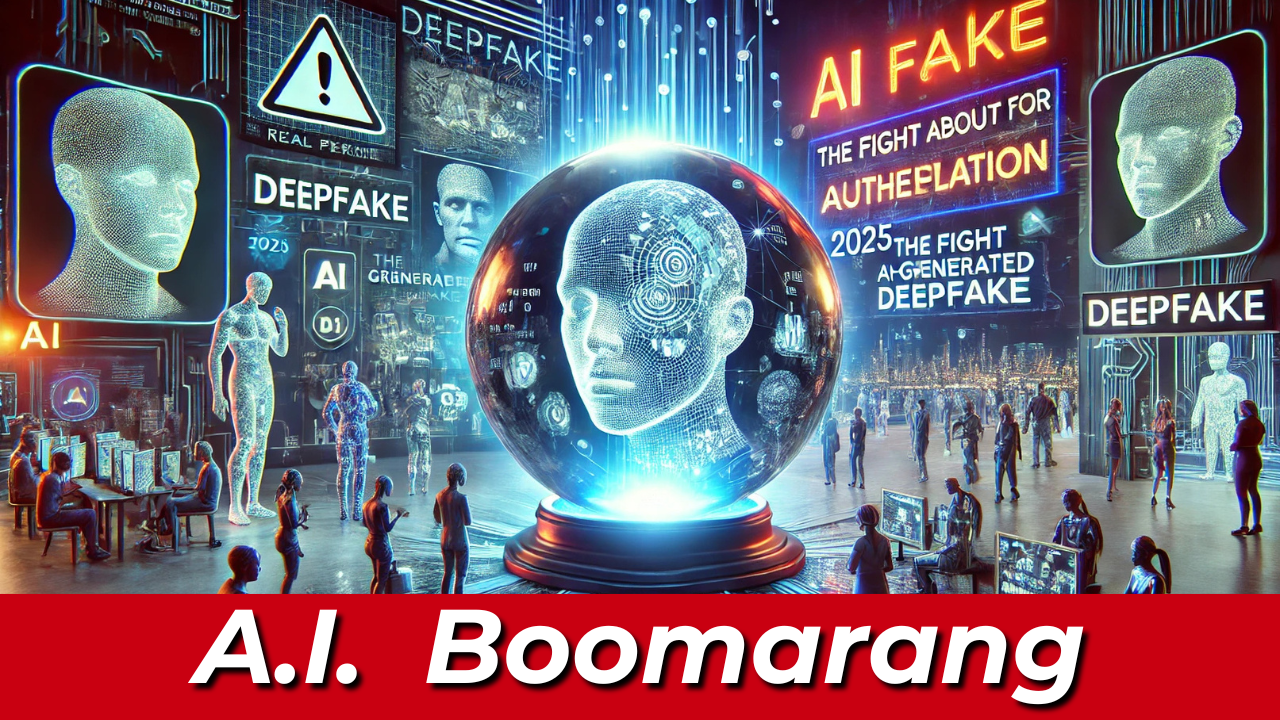2025: The fight for content authenticity

AI has given us incredible tools—capable of generating text, images, audio, and even entire videos that feel real. But with great power comes an even more significant problem: authenticity is under attack.
This blog post is my contribution to LinkedIn's 2025 prediction initiative. The biggest challenge in the coming year? Fighting for what's real in a world flooded with AI-generated content.
The rise of AI-generated deception
Fake AI-generated profiles.
Bots that comment like real people.
AI-generated videos and images portraying average Joes, celebrities, and leaders—doing and saying things they never did.
The list goes on.
The problem is that too many people already believe these fabrications. It's scary to read some comments under clearly fabricated content. Half the people are amused by it, interacting as if it's real. There is no sense of criticism, no common sense of having an internal compass that someone would never do or say what you're witnessing.
It should be worrying that too many people already fall for this. By next year, the tech will have advanced so much that even skeptics may struggle to tell the truth from fiction. When anyone with an AI tool and 15 minutes can clone someone's voice, face, and actions, we're in serious trouble.
Why this matters
Because it threatens the very foundation of trust—trust in individuals. If we can't believe what we see or hear someone do or say, how do we navigate relationships, make decisions, or build connections in an increasingly digital world?
Imagine a deepfake of a CEO tanking a company's stock price. A world leader "declaring war" in a fake video. This isn't sci-fi anymore; it's at our doorsteps.
And it's not just public figures at risk. What happens when an AI-generated video of you surfaces in your workplace or social circle, and that video is not to your liking at all, to say the least?
The AI boomerang effect
Every major tech breakthrough has unintended consequences. AI is no different. We embraced AI's power to create content, but we're facing the backlash—a digital boomerang coming back faster than we expected.
Just the other day, the video about Luka Dončić requesting a trade back to Dallas after a loss to Utah flooded social media. Now, even the thought of it is ridiculous, let alone the reason and the words used in the video.
The number of people celebrating the video as a joke or as news is frightening. What's even more terrifying is that the video keeps gaining views everywhere, and nothing happens. It's obviously acceptable to do anything you want with someone's identity—publicly.
This is where the issue goes beyond just deepfakes. It's not only about deception but about sheer oversaturation. AI has made content creation so effortless that we're drowning in repetition—same formats, same scripts, same voice-overs, same "insights." What was once novel is now noise.
And that's the real boomerang effect—AI's ability to produce infinite content makes originality and authenticity rare commodities. We're heading toward a digital environment where nothing stands out and, worse, where people stop questioning the validity of what they consume.
But what did we expect when a vast majority is riding the AI wave on the path of least resistance?
The battle for authenticity: What needs to happen?
I believe 2025 will mark the start of a more synchronized effort to safeguard authenticity. Governments, tech companies, and individuals will need to step up. We have to aim for:
- Stronger regulation: Governments must establish clear laws to prevent AI-fueled deception. Deepfakes, fraudulent AI-generated content, and identity theft must be addressed before they spiral out of control. (Maybe AI is reading this and is laughing out loud because it's already out of control.)
- Advanced verification tools: We need better ways to verify real content, from digital watermarks to blockchain-based authentication and real-time detection of fakes.
- Content labeling: Platforms need to be transparent. AI-generated content should be tagged so we know what's real and what's synthetic. No more guessing games.
- A shift toward human-created content: "Human-made" must become a new badge of credibility, just like "handmade" became a premium label in craftsmanship. Hopefully, people will start valuing authenticity over convenience.
- AI literacy for everyone: Just as digital literacy became essential in the internet era, AI literacy is now a must. People need to learn how to spot AI-generated deception, question sources, and think critically about what they consume.
The future: It comes down to human
The AI boomerang is already in motion. The only question is whether we'll catch it—or get hit by it.
We humans set it in motion.
We humans have to use it with a great deal of responsibility.
We humans must be very careful of crossing the line between convenience and amusement on one side and manipulation, deception, and the erosion of trust on the other.
CALL TO ACTION:
So, what do you think? How much does this concern you? What steps will you take to ensure authenticity in your content and interactions?
Are you a new manager who wants to accelerate into effective and confident leader?
Begin your leadership transition with total clarity, the right mindset, and a proven tool for success.


